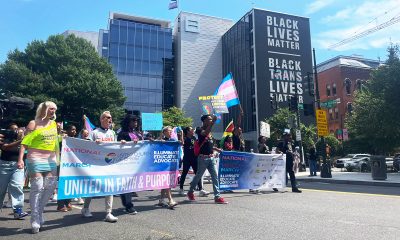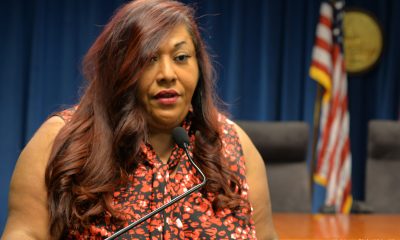Local
Even before COVID, LGBTQ+ youth faced a high risk of homelessness. The pandemic only made things worse.
Trans woman shares her journey from homelessness to hope
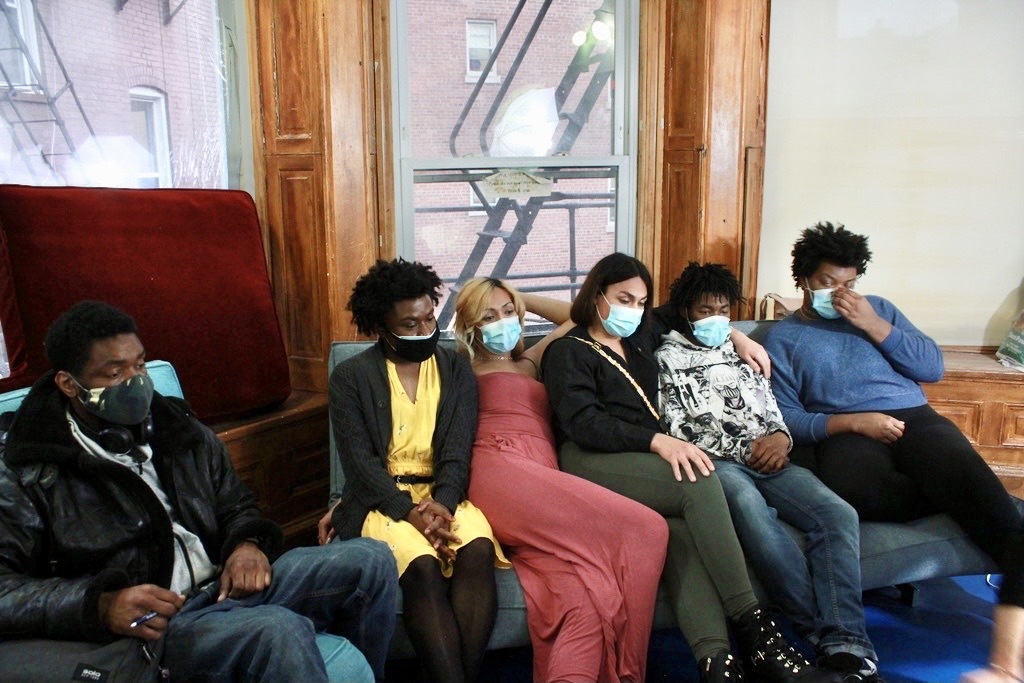
Squashed between friends on a plush couch at a shelter for homeless LGBTQ+ young people, Jada Doll talked about what happened after she began to express her identity as a transgender woman.
She moved in with her boyfriend when she was a senior in high school. But Doll – that’s the name she chose – said her family refused to let her back into their Manassas, Va. home when the couple broke up. The reason, said Doll: She had begun to identify as a female. She wound up in the nearby woods that became her home for almost three years.
“When it was raining,’’ the 22-year-old said in a recent interview, “I couldn’t feel my toes.”
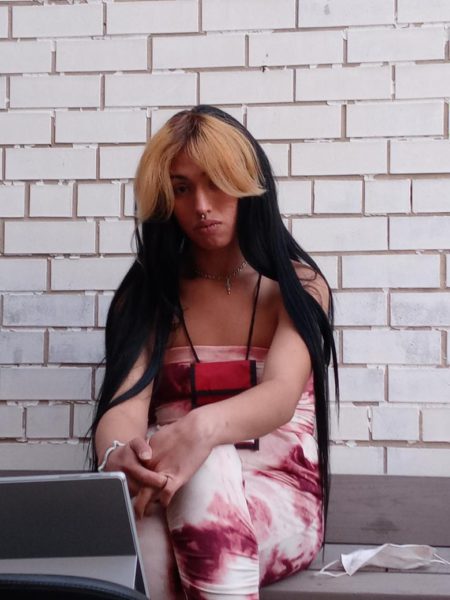
Before the pandemic, LGBTQ+ youth had a higher risk of homelessness and the health problems that come with it – from nagging toothaches to life-long trauma.
Then COVID-19 forced families to stay home together, exacerbating the domestic conflicts over gender and sexuality that have driven some young people into the street.
Casa Ruby, the shelter that Doll entered, reports a 60% increase in clients in the past year. The non-profit in the Dupont Circle neighborhood offers housing, preventative healthcare and social services to LGBTQ+ youth.
Many of the new homeless had no choice. Violence against LGBTQ+ youth often ‘’starts at home,’’ said Keith Pollard, a case manager at Supporting and Mentoring Youth Advocates and Leaders (SMYAL), a Washington non-profit that shelters about three dozen homeless LGBTQ+ youth. About 95 percent of SMYAL residents were thrown out because of their sexuality or gender identity.
Doll said she felt her family ganged up against her when she started to identify as a trans female. That, Pollard said, is a familiar story: “It starts with not being able to explore gender, with ‘Mom caught me with a skirt on’ or ‘Mom caught me with makeup on and put me out.’’’
‘They see you as a prostitute’
Being homeless can lead to a multitude of health and safety issues, but LGBTQ+ youth face unique, additional challenges.
Fear of violence looms over their heads, both on the street and in public shelters. Some shelters, Doll said, are “like jail. Other residents, she said, “can hurt us, and they don’t care if they hurt us.”
Sexual assault is an even larger worry. “They can also rape you in a shelter,’’ said another resident of Casa Ruby who calls herself Raven Queen.
Such fears are founded, according to Tearra Walker, who has lived in shelters and now helps find housing for the homeless. Some older shelter residents are sexual predators, she said, and young LGBTQ+ people “can get caught up in someone’s web.”
The streets can be even worse. Doll said insults are hurled at LGBTQ+ youth — “They see you as a prostitute.’’ In fact, said SMYAL’s Pollard, many of these young people resort to ‘‘survival sex’’ to secure a place to sleep at night.
“Once you’re out there on the street past four hours, you gonna be losing it,’’ said Nicholas Boyd, a Casa Ruby resident. “You gotta find someone to talk to, someone to socialize with, because the feeling of aloneness is scary.”
Physical health suffers as well. Pollard said that when young people come in off the street, they’re often malnourished or underweight, because “they’re just eating anything they can get their hands on.’’ That, plus lack of sleep, can also lead to attention deficits, mood disorders or suppressed immunity to disease and infection. Many suffer from sexually transmitted diseases and infections, including HIV, he said.
For more than two years, Doll lived under a canopy of trees, protected from the elements only by flimsy tents. Hygiene and privacy were the first casualties; she recalled having to use a water bottle to shower “with everyone watching.”
She ate “just about anything, like, raw stuff.” She neglected to brush her teeth. She suffered insomnia and panic attacks that continued even in the safe haven of Casa Ruby.
Brian Klausner, medical director of community population health at WakeMed hospital in Raleigh, N.C., works with the chronically homeless through a partnership with a local federally-funded health care clinic. He said their average life expectancy is about 50 (compared to 79 years for all Americans). The homeless are more likely to have suffered childhood traumas — sexual abuse, incarcerated parents, drug use in the home — which increase the risk of health issues such as heart disease, cancer, stroke and suicide, said Klausner, a primary care physician. And homelessness itself exacts a cost.
The pandemic has upped that cost. As a result of COVID restrictions, Pollard said, his organization saw an increase in drug and alcohol use as well as physical and verbal altercations: “A lot of folks were doing things that were risky, (like) going outside without a mask, interacting with large groups of people, because they could not take the isolation.’’
‘A lot to handle’
Olivia Rodriguez-Nunez said that when her older sister threatened to attack her because she’d begun to identify as a trans woman, their mother flew from Bolivia to Washington to intervene – on the side of the older sister, to “kick me out.’’
Rodriguez-Nunez’s sister, Mariela Demerick, said in a phone interview that she blames Olivia – who she calls “Mark” – for being abusive and three months behind on rent. Their mother flew up “to come set order to this home,” she said.
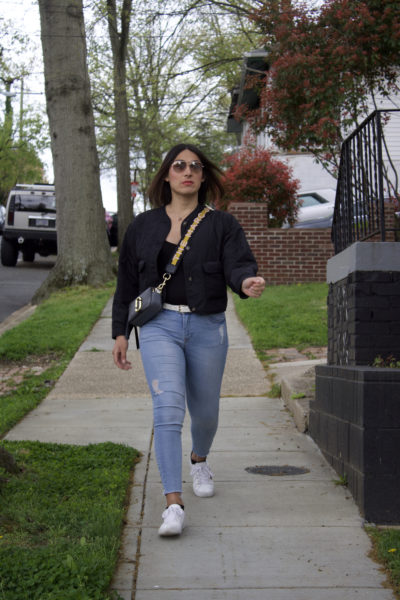
Demerick insisted that “it had nothing to do with his choice of sexuality,” but declined to call Olivia by her preferred name and pronouns and blamed hormones for making her sibling erratic.
“I’ve chosen to remove Mark out of my life.” she said.
Rodriguez-Nunez said she fled her family home in the Columbia Heights neighborhood because “having two people gang up on me, it was a lot to handle,’’ But she felt safe at Casa Ruby, which aims to be more than a shelter, but also a home where queer, transgender and gender non-conforming people can escape fear of discrimination, harassment and violence. Above all, places like Casa Ruby and SMYAL try to offer the one thing their young clients often lack: consistency.
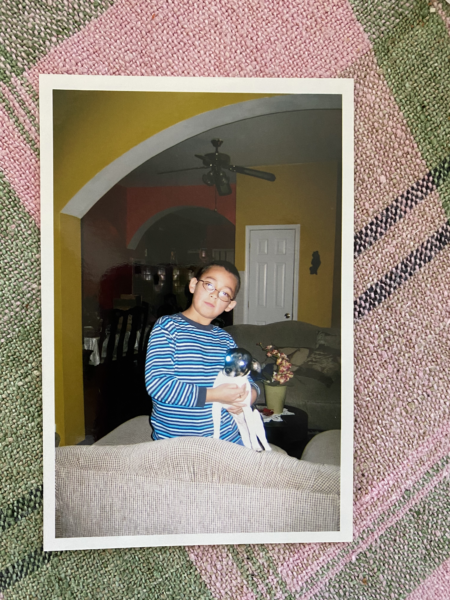
Doll is now living in a transitional apartment provided by SYMAL, while Rodriguez-Nunez was referred to a transitional group home run by the Wanda Alston Foundation.
“Our folks have had a lot of people give up on them,’’ Pollard said. “Parents or guardians give up on them because they don’t agree with their sexuality or gender identity and kick them out.’’ Teachers,foster parents or group homes also give up on kids, sometimes, he said, “just because they’re troubled.’’
“Here at Casa Ruby, it is very welcoming,’’ said Raven Queen. “Everyone can live their own life. They can be who they want.”
Tagline: Gandluri and Johnson are high school students at Our Lady of Good Counsel High School and The Baltimore Polytechnic Institute in Baltimore. They were participants in Urban Health Media Project’s workshop, “Home Sick: How Where We Live Impacts Health” in Spring of 2021. UHMP student reporters Anthony Green, Malaya Mason, Noah Pangaribuan and Diamond LaPrince contributed to this story.
District of Columbia
Sold-out crowd turns out for 10th annual Caps Pride night
Gay Men’s Chorus soloist sings National Anthem, draws cheers
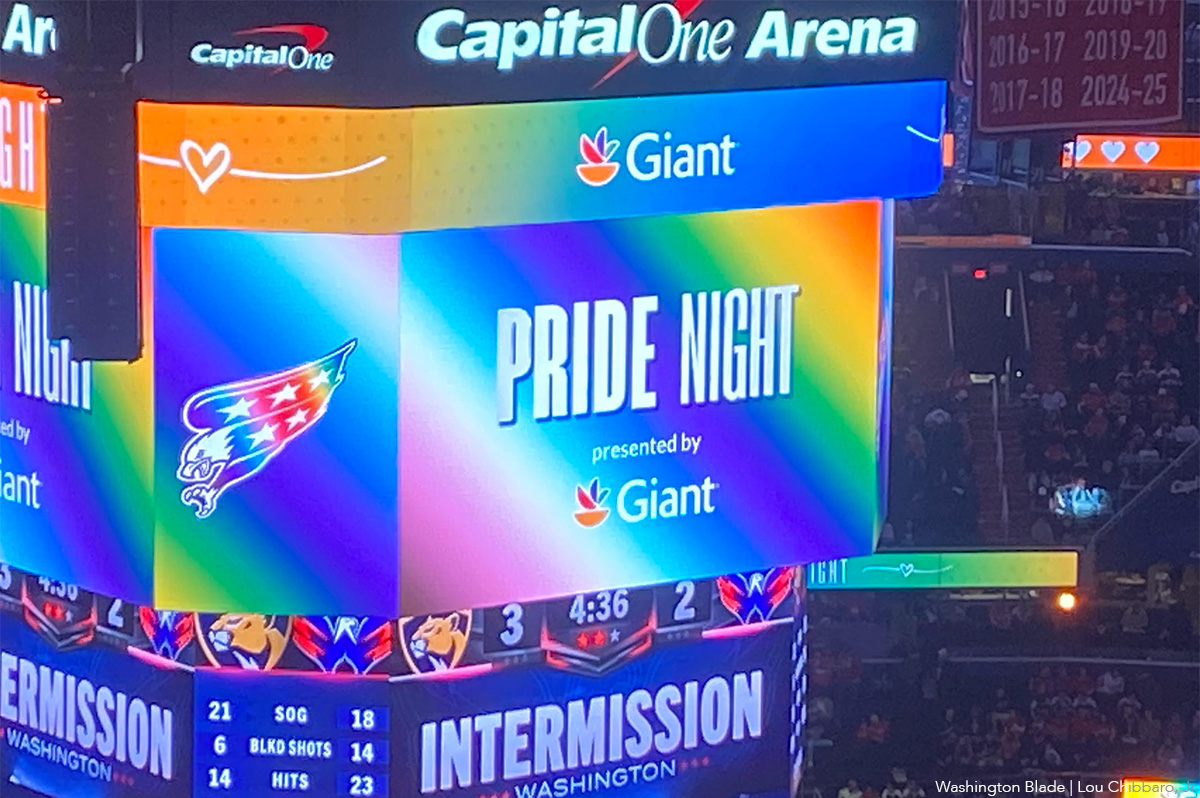
A sold-out crowd of 18,347 turned out on Jan. 17 for the 10th annual Pride Night at the Washington Capitals hockey game held at D.C.’s Capital One Arena.
Although LGBTQ Capitals fans were disappointed that the Capitals lost the game to the visiting Florida Panthers, they were treated to a night of celebration with Pride-related videos showing supportive Capitals players and fans projected on the arena’s giant video screen throughout the game.
The game began when Dana Nearing, a member of the Gay Men’s Chorus of Washington, sang the National Anthem, drawing applause from all attendees.
The event also served as a fundraiser for the LGBTQ groups Wanda Alston Foundation, which provides housing services to homeless LGBTQ youth, and You Can Play, a nonprofit organization dedicated to advancing LGBTQ inclusion in sports.
“Amid the queer community’s growing love affair with hockey, I’m incredibly honored and proud to see our hometown Capitals continue to celebrate queer joy in such a visible and meaningful way,” said Alston Foundation Executive Director Cesar Toledo.
Capitals spokesperson Nick Grossman said a fundraising raffle held during the game raised $14,760 for You Can Play. He said a fundraising auction for the Alston Foundation organized by the Capitals and its related Monumental Sports and Entertainment Foundation would continue until Thursday, Jan. 22

A statement on the Capitals website says among the items being sold in the auction were autographed Capitals player hockey sticks with rainbow-colored Pride tape wrapped around them, which Capitals players used in their pre-game practice on the ice.
Although several hundred people turned out for a pre-game Pride “block party” at the District E restaurant and bar located next to the Capital One Arena, it couldn’t immediately be determined how many Pride night special tickets for the game were sold.
“While we don’t disclose specific figures related to special ticket offers, we were proud to host our 10th Pride night and celebrate the LGBTQ+ community,” Capitals spokesperson Grossman told the Washington Blade.
Virginia
Two gay candidates running in ‘firehouse’ Va. House of Delegates primary in Alexandria
Kirk McPike, Gregory Darrall hope to succeed delegate vying for Ebbin’s seat

Gay Alexandria City Council member Kirk McPike and gay public school teacher Gregory Darrall, who serves as vice president of the Fairfax County Federation of Teachers, are among four candidates running in a Jan. 20 “firehouse” Democratic primary for a seat in the Virginia House of Delegates.
With less than a week’s notice, Democratic Party officials in Alexandria called the primary to select a Democratic nominee to run in a Feb. 10 special election to fill the 5th House District seat being vacated by state Del. Elizabeth Bennett-Parker (D-Alexandria).
Bennett-Parker won the Democratic nomination for the Virginia Senate seat being vacated by gay state Sen. Adam Ebbin (D-Alexandria), who is resigning from the seat to take a position in the administration of Democratic Virginia Gov. Abigail Spanberger, who took office on Jan. 17.
Bennett-Parker won the nomination for the state Senate seat in yet another firehouse primary on Jan. 13 in which she defeated three other candidates, including gay former state Del. Mark Levine.
The Jan. 20 primary in which McPike and Darrall are competing will take place from 8:30 a.m. to 7 p.m. in two polling places in Alexandria: the Charles E. Beatley Jr. Central Library at 5005 Duke St. and the Charles Houston Recreation Center at 901 Wythe St.
The other two candidates running are former Alexandria City School Board member Eileen Cassidy Rivera and criminal law defense attorney Chris Leibig.
McPike, who first won election to the Alexandria City Council in 2021, served for 13 years as chief of staff for gay U.S. Rep. Mark Takano (D-Calif.) prior to winning election to the Alexandria City Council.
“Now, Kirk is ready to bring his experience to Richmond to keep improving the lives of all Virginians as our delegate for House District 5,” his campaign website says. His website writeup says he and his husband, Cantor Jason Kaufman, have lived in Alexandria’s Seminary Hill neighborhood for 15 years.
“As delegate, we can count on Kirk to keep delivering for us — helping Virginia maintain our commitments to our schools, our first responders, and our efforts to address climate change, housing affordability, and infrastructure,” the website statement says.
McPike, a longtime LGBTQ rights supporter and advocate, has been endorsed by Ebbin and U.S. Rep. Don Beyer (D-Va.). Beyer said in a statement that McPike “has a proven track record of delivering results for Alexandrians.” The LGBTQ+ Victory Fund, which raises money for LGBTQ candidates running for public office, has also endorsed McPike.
Darrall’s campaign website says he is a “proud progressive, lifelong educator, and labor leader running to put people first.” It says he is a political newcomer “with more than 20 years in the classroom” as a teacher who played a key role in the successful unionization of Fairfax Public Schools.
“He is a proud member and staunch supporter of the LGBTQIA+ community,” his website statement says. It says he met his husband Jose while living in Miami and the two operated a small business in South Florida for a decade before moving to Alexandria in 2015. It adds that Darrall is “fluent in Spanish, loves walking Alexandria’s neighborhoods, and is driven by a deep belief in fairness, equality, and strengthening our democracy from the ground up.”
The Alexandria Republican City Committee nominated local business executive Mason Butler as the Republican nominee for the House of Delegates seat in the Feb. 10 special election after he emerged as the only GOP candidate running for the seat, according to the Alexandria Brief publication. He will face the Democratic winner in the Jan. 20 firehouse primary.
“As Delegate for House District 5, I will be a fierce advocate for LGBT equality in the Virginia General Assembly,” Rivera stated. She praised Spanberger for signing an LGBTQ-supportive executive order on her first day in office.
Rivera added, “I will fight alongside her to restore and enforce the Virginia Values Act, advance marriage equality, and ensure robust nondiscrimination protections in housing, employment, healthcare, and public accommodations.”
In his own statement, Leibig said, “I am as strong a supporter for LGBTQ rights as you can get.” Noting his role as a defense attorney specializing in criminal law, he added, “I regularly get calls from outside the commonwealth about defending trans people in situations where they are being treated terribly.”
He noted he was among the attorneys working on the first lawsuit against the Bureau of Prisons in support of “gender reaffirming surgery for an inmate.” He said he represented transgender former U.S. Army soldier Chelsea Manning in 2019 and was among those advocating for improved conditions for trans people in prisons.
“People of this community can count on me to support this community,” he said in referring to the LGBTQ community.
The Washington Blade couldn’t immediately reach GOP candidate Butler, who is running in the Feb. 10 special election but not in the Jan. 20 firehouse primary.
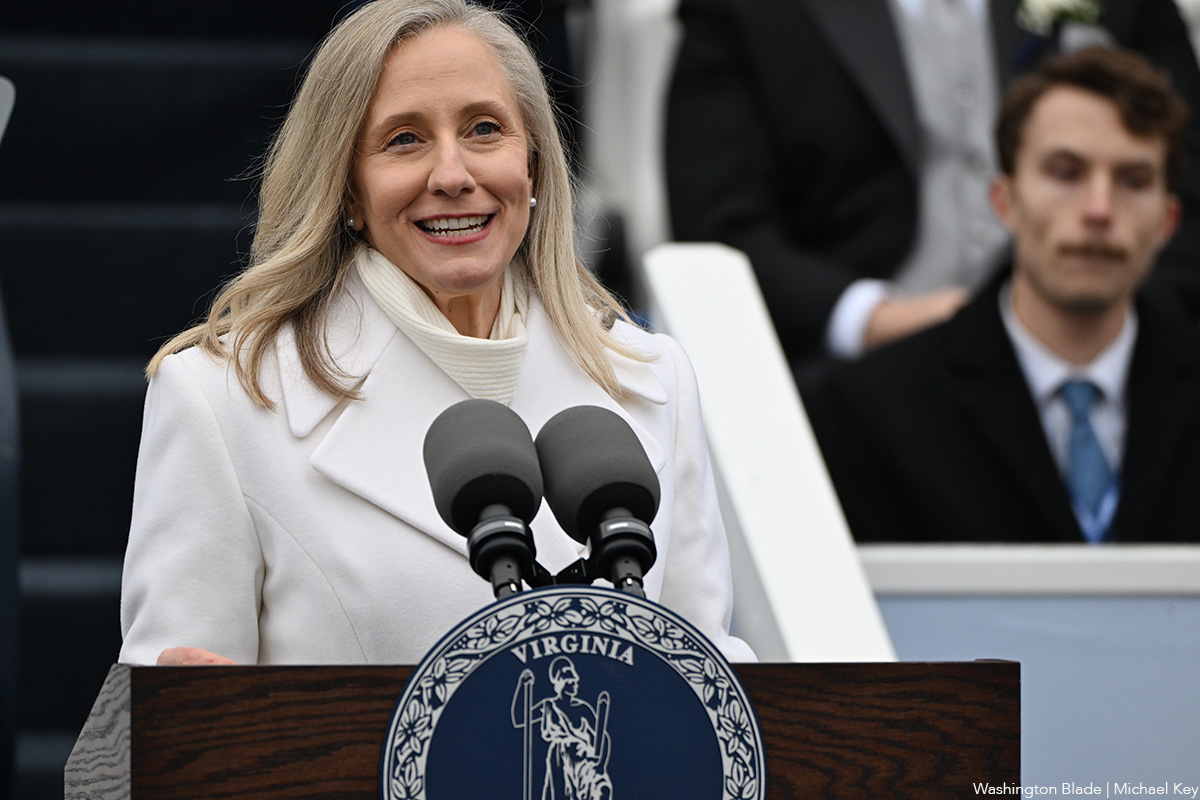
Abigail Spanberger was sworn in as the 75th governor of Virginia at a ceremony on the grounds of the Virginia State Capitol on Saturday. Thousands of spectators watched the swearing-in ceremony and parade, despite the rain and temperatures in the low 40s.
Spanberger, a member of the Democratic Party and an LGBTQ ally, became the first woman to be Virginia’s governor.
View on Threads
Newly-elected Attorney General Jay Jones, Lt. Gov. Ghazala Hashmi, and Spanberger were each administered the oath of office in the public ceremony.

Republican former Gov. Glenn Youngkin left the ceremony shortly after the oath of office was administered to Spanberger and before the inaugural address.
In her speech, the new governor made an appeal to bipartisanship and looking past division in our current moment.
“To my friends in the General Assembly — on both sides of the aisle — I look forward to working with you,” said Spanberger. “I know what it means to represent your constituents, to work hard for your district, and to pursue policies you believe in. We will not agree on everything, but I speak from personal experience when I say that we do not have to see eye-to-eye on every issue in order to stand shoulder-to-shoulder on others.”
Spanberger acknowledged Virginians’ frustrations with federal layoffs and governmental policy.
“I know many of you are worried about the recklessness coming out of Washington. You are worried about policies that are hurting our communities — cutting healthcare access, imperiling rural hospitals, and driving up costs,” said Spanberger. “You are worried about Washington policies that are closing off markets, hurting innovation and private industry, and attacking those who have devoted their lives to public service.”
Spanberger alluded to the Trump administration, though never mentioned President Donald Trump’s name in her remarks.
Spanberger said, “you are worried about an administration that is gilding buildings while schools crumble, breaking the social safety net, and sowing fear across our communities, betraying the values of who we are as Americans, the very values we celebrate here on these steps.”
The new governor then spoke of her priorities in office, pledging to tackle housing affordability by working to “cut red tape” and increase housing supply. Spanberger also spoke of forestalling an impending healthcare crisis by protecting access and cracking down on “middlemen who are driving up drug prices.”
Spanberger spoke of investments in education at every level, standing up for workers (including the large number of federal workers in Virginia), and taking action on gun violence.
Virginia married couple Mary Townley and Carol Schall witnessed the inauguration ceremony from the stands set up on the grounds of the Capitol. Schall and Townley are one of the plaintiff couples in the case that challenged the Virginia constitutional ban on same-sex marriage.
Same-sex marriage became legal in Virginia in 2014.
“We are delighted with the inauguration of Abigail Spanberger as governor of Virginia,” Schall told the Washington Blade. “The celebration of her inauguration was full of the beautiful diversity that is Virginia. The Virginia Pride contingent was included as a part of what makes Virginia a great place to live.”
“Such an honor to attend such a wonderful event in Virginia history,” Townley told the Blade. “The weather before the Inauguration was cold and rainy, but I believe it represented the end of a dreary time and it ushered in the dry and sunny weather by the end of the inaugural parade. Madam Governor brought us to the light!”
The inaugural parade following the governor’s remarks included a contingent from Diversity Richmond and Virginia Pride. Marchers in the LGBTQ contingent carried a giant Progress Pride flag and were met with loud cheers from the gathered spectators.

Spanberger after her inauguration signed 10 executive orders. One of them bans discrimination against state employees based on sexual orientation, gender identity, and other factors.
“By virtue of the authority vested in me as Governor under Article V of the Constitution of
Virginia, I hereby declare that it is the firm and unwavering policy of the Commonwealth of Virginia to ensure equal opportunity in all facets of state government,” reads the executive order. “The foundational tenet of this executive order is premised upon a steadfast commitment to foster a culture of inclusion, diversity, and mutual respect for all Virginians.”



